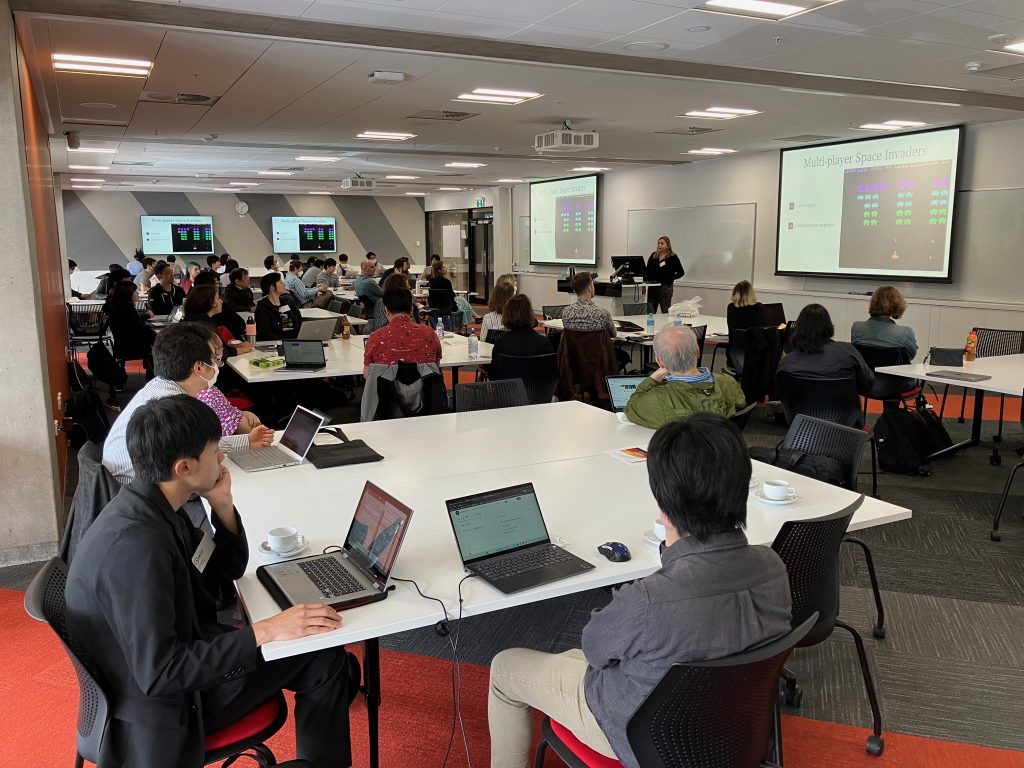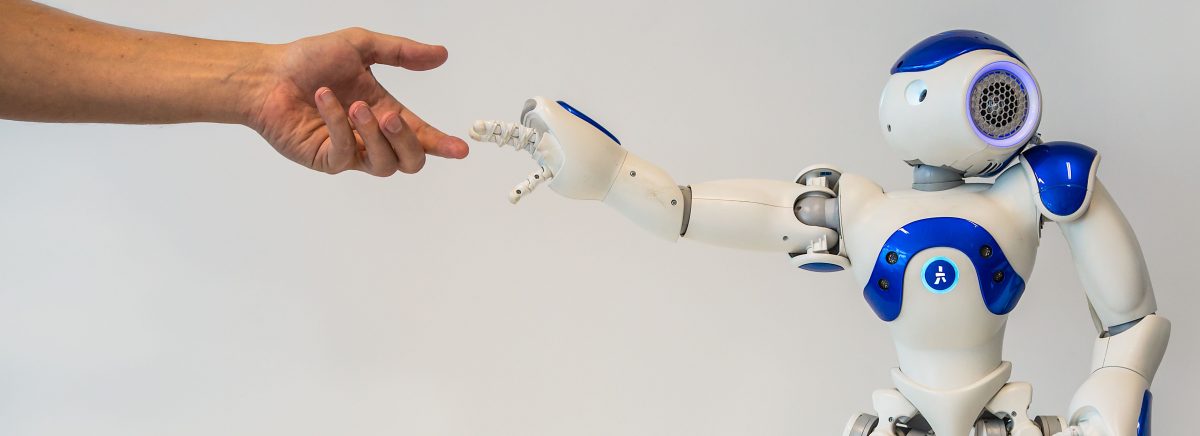The 10th International Conference on Human-Agent Interaction has started at UC in Christchurch. The conference proceedings are available at the ACM Digital Library. Two years of hard work and planning are coming together.
Tag: human
Perceived Threat Of Robots
How do people respond to robots that are better than them?
Dwain Allan and I gave a speech at the Institute for Ethics in Artificial Intelligence Speaker Series on “Perceived Threat Of Robots”.
Free online program on Human-Robot Interaction
The introduction to Human–Robot Interaction MOOC provides a broad overview of the multidisciplinary topics central to modern HRI research. The courses are available for free at edX.
In collaboration with edX and UCX, I am offering a MOOC (Massive Open Online Courses) on Human-Robot Interaction. The Professional Certificate in Human-Robot Interaction consists of two courses that start on September 1st 2021. You will learn:
- The latest research information on Human-Robot Interaction and research methods in the subject area.
- How robots work and how to design one
- What the various forms of Human-Robot Interaction are, including spatial, verbal and non-verbal
- How robots manage emotions
- The practical applications of robots and their role in society
Introduction to Human-Robot Interaction
The Introduction to Human-Robot Interaction course provides a broad overview of the multidisciplinary topics central to modern Human-Robot Interaction research and introduces all the relevant background concepts; describing how robots work, how to design them, and the specifics of spatial and non-verbal interaction.
Methods and Application in Human-Robot Interaction
The Methods and Application in Human-Robot Interaction course continues to explore the multidisciplinary topics central to modern Human-Robot Interaction research and looks at the role that robots may play in our society; investigating the real world application areas such as: learning, healthcare, personal assistants, and transport.
The Morality Of Abusing A Robot
Our paper The Morality Of Abusing A Robot has been published.
We are happy to announce that our paper “The Morality Of Abusing A Robot” has been published under the Creative Commons license at the Paladyn Journal. You can also download the PDF directly.
It is not uncommon for humans to exhibit abusive behaviour towards robots. This study compares how abusive behaviour towards a human is perceived differently in comparison with identical behaviour towards a robot. We showed participants 16 video clips of unparalleled quality that depicted different levels of violence and abuse. For each video, we asked participants to rate the moral acceptability of the action, the violence depicted, the intention to harm, and how abusive the action was. The results indicate no significant difference in the perceived morality of the actions shown in the videos across the two victim agents. When the agents started to fight back, their reactive aggressive behaviour was rated differently. Humans fighting back were seen as less immoral compared with robots fighting back. A mediation analysis showed that this was predominately due to participants perceiving the robot’s response as more abusive than the human’s response.
We created a little video to demonstrate the two main conditions of the experiment, a human or a robot being abused and then fighting back. We would like to acknowledge Jake Watson and Sam Gorski from Corridor Digital who made the stimuli for this experiment available.
PhD Position: The influence of robots on the development of language
The HIT Lab NZ has an opening for a PhD in Human-Robot Interaction entitled: “The influence of robots on the development of language“.
The ‘Wordovators’ project is a three-year project funded by the John Templeton Foundation. The project will conduct large-scale experiments in the form of computerized word games. These games will be designed to probe the factors underpinning word creation and creativity, and how these develop through the life-span. One strand of the project will probe particular issues surrounding interactions between people and humanoid Robots. How are new words created and adopted in contexts involving such interactions? This PhD position is for a highly motivated student to join the project team, and conduct work that explores the ways that robots might shape human languages. These studies will analyze the factors and processes that might contribute to the influence of robots on the vocabularies of English and of artificial languages in imaginary worlds. Continue reading “PhD Position: The influence of robots on the development of language”


